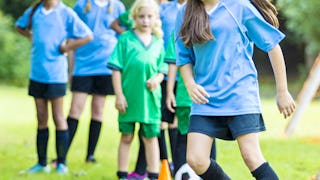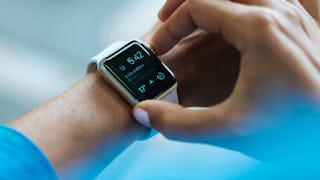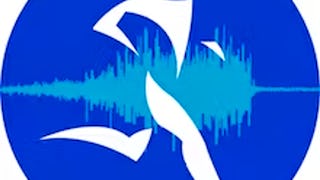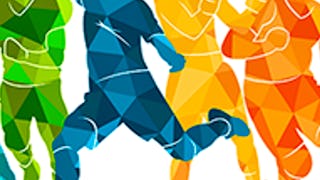Seventy percent of kids drop out of sports before their high school graduation. Only 15% leave because they feel they are not good enough. Almost 70% leave because they were not having fun, or due to problems with the coach. Injuries cause 30% to give up sports. This course is packed full of practical sports science information that provide youth coaches and parents with the practical pediatric sports science insights to successfully retain young athletes and develop their sport potential while avoiding injury and overtraining. We begin by examining the multidimensional nature of coaching, the relevant sport motor performance abilities, the impact of growth and development on motor skills, the gene versus practice controversy, and briefly overview the body structures strengthened through training. Then we explore the athlete's energy supply, where this energy comes from, and how it matures along with the athlete. Finally, we examine the development of strength, power, anaerobic capacity, coordination and flexibility through the life span.



The Science of Training Young Athletes

Instructor: Dr. Chris Brooks
40,216 already enrolled
Included with 
(931 reviews)
Details to know

Add to your LinkedIn profile
15 assignments
See how employees at top companies are mastering in-demand skills


Earn a career certificate
Add this credential to your LinkedIn profile, resume, or CV
Share it on social media and in your performance review

There are 5 modules in this course
Youth coaches who have a sound understanding of pediatric sports science are essential to the successful development of a young athlete’s sport potential. In this section you are introduced to the multidimensional nature of coaching, and how an athlete’s motor abilities of endurance, strength, speed, coordination and flexibility are affected by growth and maturation. The manual is available in the Resource Section.
What's included
23 videos3 assignments2 discussion prompts
Many factors can positively and negatively impact the young athlete’s ability to optimize their sports potential. In this section we examine strategies for ensuring the athlete’s systematic long-term sports development and how to mold the correct sport-specific phenotype.
What's included
20 videos3 assignments1 discussion prompt
The coach is a microbiologist who designs training so it stimulates the body’s cells and structures to become stronger and more efficient. In this section you are introduced to key organ systems, and the energy these organ systems use to run the chemical reactions needed for a sports performance. You will also learn how diet can positively enhance an athlete’s ability to train and compete.
What's included
18 videos3 assignments1 discussion prompt
The level of expertise with which an athlete is able to perform sports skill depends on how well the coach molds the correct ratio of endurance, strength, power and speed to meet the demands of the sport. In this section you will learn the science behind developing these important motor performance abilities as the young athlete moves through puberty.
What's included
23 videos4 assignments1 peer review1 discussion prompt
Coordination and flexibility permit movements that are precise, fluid and spatially controlled. In this section we examine current knowledge about coordination and flexibility as the young child moves through early childhood and into adolescence.
What's included
21 videos2 assignments1 discussion prompt
Instructor

Offered by
Recommended if you're interested in Personal Development


University of Florida


University of Michigan


University of Colorado Boulder


The State University of New York
Why people choose Coursera for their career




Learner reviews
931 reviews
- 5 stars
87.75%
- 4 stars
10.09%
- 3 stars
1.28%
- 2 stars
0.21%
- 1 star
0.64%
Showing 3 of 931
Reviewed on Jun 19, 2023
A comprehensive introduction to youth sports coaching that covers all the science basics that equips coaches with a fresh perspective on engaging the kids programs and development.
Reviewed on May 27, 2016
Excellent course!Will use information to help my general health & wellness.Also highly recommend to any athlete, coach or anyone engaged in fitness.
Reviewed on Sep 2, 2020
I found the teachings here very useful for my career path. It helped me understand how to treat kids better when teaching them sport and how to take care of them
New to Personal Development? Start here.

Open new doors with Coursera Plus
Unlimited access to 10,000+ world-class courses, hands-on projects, and job-ready certificate programs - all included in your subscription
Advance your career with an online degree
Earn a degree from world-class universities - 100% online
Join over 3,400 global companies that choose Coursera for Business
Upskill your employees to excel in the digital economy
Frequently asked questions
Access to lectures and assignments depends on your type of enrollment. If you take a course in audit mode, you will be able to see most course materials for free. To access graded assignments and to earn a Certificate, you will need to purchase the Certificate experience, during or after your audit. If you don't see the audit option:
The course may not offer an audit option. You can try a Free Trial instead, or apply for Financial Aid.
The course may offer 'Full Course, No Certificate' instead. This option lets you see all course materials, submit required assessments, and get a final grade. This also means that you will not be able to purchase a Certificate experience.
When you purchase a Certificate you get access to all course materials, including graded assignments. Upon completing the course, your electronic Certificate will be added to your Accomplishments page - from there, you can print your Certificate or add it to your LinkedIn profile. If you only want to read and view the course content, you can audit the course for free.
You will be eligible for a full refund until two weeks after your payment date, or (for courses that have just launched) until two weeks after the first session of the course begins, whichever is later. You cannot receive a refund once you’ve earned a Course Certificate, even if you complete the course within the two-week refund period. See our full refund policy.
More questions
Financial aid available,

